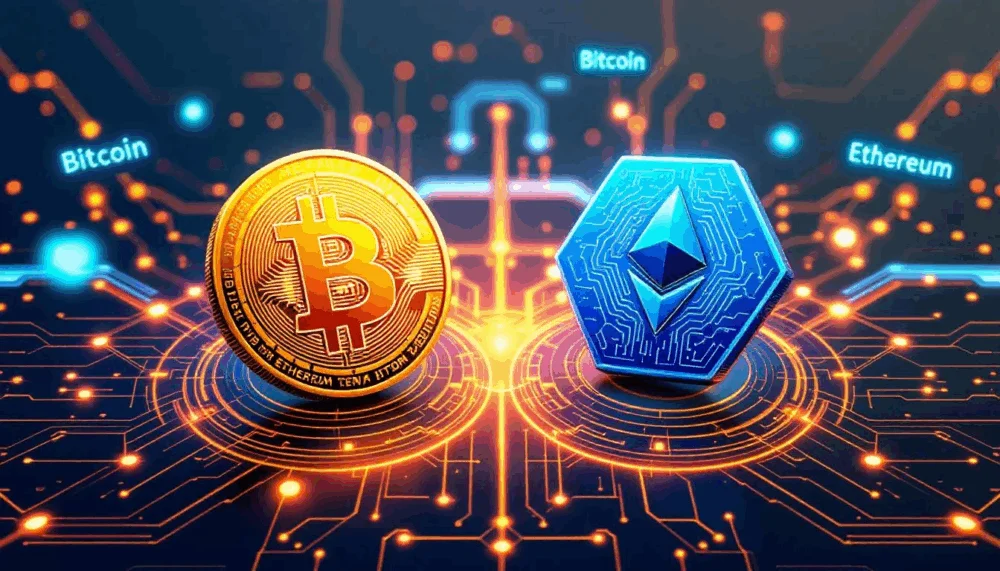As governments tighten regulations and exchanges face increasing scrutiny, crypto users who value privacy and fast access are turning to No-KYC (Know Your Customer) cryptocurrency exchanges. These platforms, often referred to as decentralized exchanges, allow users to trade cryptocurrencies without identity verification, preserving anonymity and offering more freedom.
In contrast, a centralized cryptocurrency exchange provides various features such as trading tools and withdrawal limits, attracting users with high non-KYC limits for privacy or a variety of trading options.
Top No KYC Exchanges in 2025
Exchange | Best For | Fees | Withdrawal Limits | Supported Assets | Fiat On-Ramp | Mobile App | Low Trading Fees |
|---|---|---|---|---|---|---|---|
DeFi swaps, multi-chain assets | ~0.20% swap | Unlimited (DEX) | 5,000+ tokens | No | iOS, Android | Yes | |
Altcoin trading, futures; platform supports trading across multiple assets | 0.10% | 1 BTC/day no KYC | 700+ tokens | Limited | iOS, Android | Yes | |
Spot & leverage trading | 0.10% | No KYC for crypto | 1,600+ tokens | Third-party | iOS, Android | Yes | |
Spot & margin trading | 0.10% spot | Limited no KYC tier | 500+ tokens | Yes | iOS, Android | Yes | |
ETH & Layer-2 DEX trading | DEX variable | Unlimited (DEX) | Thousands | No | Web, Wallets | Yes | |
BNB Chain DeFi assets | DEX variable | Unlimited (DEX) | BNB & multi-chain | No | Web, Wallets | Yes |
BestWallet – Privacy-First DeFi Trading
BestWallet stands out as a non-custodial DeFi wallet with built-in swapping features. It does not hold user funds directly, enhancing security. It functions like a DEX aggregator, offering seamless token swaps across multiple chains — without KYC, accounts, or custodial risks. BestWallet also serves as a versatile cryptocurrency exchange, catering to various trading needs and user preferences.
Key Features:
- No KYC ever (wallet connects directly).
- Supports Ethereum, BNB Chain, Polygon, Arbitrum.
- Integrated DEX aggregator (best swap rates).
- Supports NFTs, staking, and DeFi IDOs.
- Fully mobile-friendly (iOS & Android).
Verdict: BestWallet is perfect for privacy-focused users who prefer decentralized control and multi-chain DeFi access.
Centralized Exchanges with Limited No KYC Access
While DEXes like BestWallet, Uniswap, and PancakeSwap offer true no-KYC environments, some centralized exchanges still provide limited no-KYC access, offering a balance between the convenience of centralized exchange features and the control of decentralized platforms:
Bybit allows users to engage in buying crypto without KYC verification for small amounts, making it an attractive option for those seeking anonymity. However, it’s important to note the potential risks and legal implications associated with non-KYC exchanges, as increasing regulatory scrutiny may affect their accessibility and operation in the future.
These exchanges cater to both beginners and experienced traders by offering user-friendly platforms and advanced trading features.
KuCoin
- No KYC required for up to 1 BTC/day withdrawal.
- Supports spot, margin, futures, and staking.
- Requires KYC for fiat transactions & higher limits.
MEXC
- Offers spot & futures trading with no mandatory KYC.
- Third-party fiat on-ramps available.
- Great altcoin selection (1,600+ assets).
Bybit
- Limited spot trading and small withdrawals without KYC.
- KYC required for fiat & high-volume users.
Verdict: Ideal for small to medium traders who want centralized features without full verification.
Non-KYC crypto exchanges are platforms that allow users to trade cryptocurrencies without undergoing Know Your Customer (KYC) verification. Unlike traditional exchanges that require personal identification documents to comply with anti-money laundering (AML) and Combating the Financing of Terrorism (CFT) regulations, a no KYC crypto exchange appeals to privacy-conscious traders who prefer not to disclose personal information. This appeals to users who prioritize their financial privacy and wish to avoid the invasive data collection associated with KYC verification. However, it’s important to note that non-KYC crypto exchanges may not offer the same level of security as traditional exchanges that require KYC verification.
What Are No KYC Crypto Exchanges?
No KYC (Know Your Customer) crypto exchanges do not require you to submit personal identification documents to trade. Traditional exchanges, on the other hand, often require identity verification for compliance with legal regulations. You can:
- Sign up with just an email or wallet.
- Trade crypto-to-crypto pairs.
- Withdraw funds (within limits).
- Avoid invasive data collection.
Decentralized and non-custodial exchanges enable users to perform crypto swaps, allowing them to trade various cryptocurrencies without the need for KYC verification. These platforms emphasize ease of use, security features, and the ability to perform cross-chain swaps, appealing to users seeking privacy and convenience in their trading experience.
An instant crypto exchange is a type of platform that allows quick trades without registration, making it an attractive option for users seeking simplicity in buying and selling crypto.
Most no KYC exchanges:
- Do not allow fiat deposits/withdrawals.
- Focus on crypto-to-crypto trading.
- May limit withdrawals without KYC.
What is KYC in Crypto?
KYC, or Know Your Customer, is a regulatory process that requires financial institutions, including cryptocurrency exchanges, to verify the identity of their customers. The primary goal of KYC is to prevent money laundering, terrorist financing, and other financial crimes. In the context of cryptocurrency exchanges, KYC typically involves providing personal identification documents, such as a government-issued ID, proof of address, and sometimes even a selfie. This process is mandatory for users who want to trade cryptocurrencies on traditional exchanges. However, non-KYC crypto exchanges offer an alternative for users who prefer to maintain their anonymity and avoid the extensive documentation required by KYC verification.
Some exchanges highlight the benefits of completing KYC, such as increased trading and withdrawal limits. For example, platforms like BYDFi and PrimeXBT emphasize that while users can operate with certain limits without completing the KYC process, completing KYC can unlock additional features and higher limits, appealing to those who prioritize both security and functionality.
Benefits of Using No KYC Exchanges
There are several benefits to using non-KYC crypto exchanges. One of the primary advantages is the ability to trade cryptocurrencies anonymously. Non-KYC exchanges do not require users to provide personal identification documents, making it more difficult for hackers and other malicious actors to steal sensitive information. Additionally, non-KYC exchanges often have faster registration processes and lower trading fees compared to traditional exchanges. They offer a more private and secure way of trading cryptocurrencies, which is appealing to users who value their financial privacy. By using non-custodial wallets, users have full control over their private keys, enhancing their privacy and security. Furthermore, non-KYC exchanges may provide more flexible trading options, such as higher leverage and a wider variety of trading pairs.
Risks and Challenges of No KYC Exchanges
While non-KYC crypto exchanges offer several benefits, they also come with some risks and challenges. One of the primary concerns is the lack of security and regulation. Non-KYC exchanges may not have the same level of security measures as traditional exchanges, making them more vulnerable to hacking and other security threats. Additionally, non-KYC exchanges may not be compliant with AML and CFT regulations, which can lead to legal issues and reputational damage. Furthermore, non-KYC exchanges may have lower liquidity and more volatile markets, making it more difficult to trade cryptocurrencies. Users should also be aware of the potential for scams and phishing attacks on non-KYC exchanges.
Non-KYC platforms allow users to trade without undergoing traditional identity verification processes, which appeals to those valuing privacy and convenience. However, these platforms come with potential risks, such as lack of regulation, vulnerability to scams, and challenges in recovering lost funds.
How to Choose the Right Crypto Exchange
Choosing the right crypto exchange can be a daunting task, especially for new users. When selecting a crypto exchange, there are several factors to consider. One of the primary considerations is the level of security and regulation. Users should look for exchanges with a strong reputation, robust security measures, and compliance with AML and CFT regulations. Additionally, users should consider the trading fees, liquidity, and trading pairs offered by the exchange. It’s also essential to read reviews and research the exchange to ensure it is reputable and trustworthy. Users should also consider the level of customer support and the user interface of the exchange. By considering these factors, users can choose a crypto exchange that meets their needs and provides a secure and private trading experience.
How to Buy Crypto Without KYC
Buying crypto without KYC (Know Your Customer) verification is a straightforward process that prioritizes user privacy and anonymity. Non-KYC crypto exchanges eliminate the need for personal identification documents, making it easier for users to trade crypto without compromising their privacy. Here’s how you can buy crypto without KYC:
- Choose a Reputable Non-KYC Crypto Exchange: Start by selecting a well-known non-KYC crypto exchange such as BestWallet or MEXC. These platforms are known for their user-friendly interfaces and commitment to privacy.
- Create an Account: Sign up on the chosen exchange using minimal information, typically just an email address. This quick registration process is one of the key benefits of non-KYC exchanges.
- Deposit Funds: Fund your account using a supported payment method. While most non-KYC exchanges focus on crypto-to-crypto transactions, some may offer limited fiat currency options through third-party services.
- Purchase Cryptocurrency: Select the cryptocurrency you wish to buy, enter the amount, and complete the transaction. The process is usually fast and straightforward.
- Withdraw to a Personal Wallet: For added security, transfer your purchased cryptocurrency to a personal wallet. This ensures you have full control over your digital assets.
Non-KYC crypto exchanges offer enhanced privacy, faster registration, and often lower trading fees. However, it’s crucial to be aware of potential security concerns and limited customer support. Always research and choose a reputable non-KYC exchange to ensure a safe trading experience.
DEX Alternatives: Uniswap & PancakeSwap
For complete privacy and non-custodial trading, it’s important to consider security concerns related to using DEXes:
- Uniswap (Ethereum & Layer-2 tokens) is a popular non-KYC exchange that allows users to trade without undergoing the Know Your Customer verification process. This platform offers instant trading and user privacy, but it’s crucial to be aware of the potential risks and legal challenges associated with using non-KYC exchanges. Decentralized exchanges like Uniswap allow users to trade tokens directly from personal wallets without KYC, facilitating quick and uncomplicated trading experiences across multiple blockchain platforms.
- PancakeSwap (BNB Chain & multi-chain assets).
No registration, no limits, no KYC — just connect your wallet and trade.
Copy Trading on Crypto Exchanges
Copy trading, also known as social trading, is a feature that allows users to automatically replicate the trades of experienced traders. This can be particularly beneficial for beginners or those who lack the time or expertise to trade cryptocurrencies themselves. Here’s how you can engage in copy trading on a crypto exchange:
- Select a Reputable Exchange: Choose a crypto exchange that offers copy trading features, such as Margex or BIoFin. These platforms provide access to a variety of experienced traders whose strategies you can follow.
- Choose a Trader to Copy: Review the performance and trading strategies of available traders. Select one whose approach aligns with your investment goals and risk tolerance.
- Allocate Funds: Decide how much of your funds you want to allocate to copy trading. Configure the trading parameters to match your preferences.
- Automate Trades: The exchange will automatically execute trades based on the actions of the selected trader. This allows you to benefit from their expertise without actively managing your trades.
- Monitor and Adjust: Regularly monitor the performance of the copied trades. Adjust your settings or switch traders if necessary to optimize your results.
Copy trading offers the potential for passive income and access to expert trading knowledge. However, it’s important to understand the risks, including the possibility of losses. Carefully select reputable traders and thoroughly research the copy trading feature before engaging in it.
Safest Crypto Exchange Options
When it comes to trading cryptocurrencies, safety is paramount. The safest crypto exchange options are those that prioritize security, transparency, and regulatory compliance. Here are key factors to consider when selecting a crypto exchange:
- Security Measures: Look for exchanges that implement robust security protocols, such as two-factor authentication (2FA), cold storage for funds, and regular security audits. These measures help protect your assets from potential threats.
- Regulatory Compliance: Choose exchanges that comply with relevant regulations, including anti-money laundering (AML) and know-your-customer (KYC) laws. Compliance ensures that the exchange operates within legal frameworks, reducing the risk of legal issues.
- Transparency: Opt for exchanges that provide clear and transparent information about their operations, fees, and trading practices. Transparency builds trust and helps you make informed decisions.
- Reputation: Research the exchange’s reputation by reading reviews and user feedback. A track record of reliability and trustworthiness is crucial for ensuring a safe trading experience.
Some of the safest crypto exchange options include:
- BestWallet: A non-KYC crypto exchange that prioritizes user privacy and security, offering a decentralized trading environment.
- MEXC: A centralized crypto exchange known for its robust security measures and regulatory compliance, providing a secure platform for trading.
- Margex: An exchange that offers advanced trading features and prioritizes user security and transparency, making it a reliable choice for traders.
By considering these factors and selecting a reputable crypto exchange, you can minimize the risks associated with trading cryptocurrencies and ensure a safe and secure trading experience.
Pros & Cons of No KYC Exchanges
Pros | Cons |
|---|---|
Enhanced privacy & anonymity by avoiding undergoing KYC verification | No fiat deposits/withdrawals (mostly) |
Instant access & fast onboarding | Lower liquidity vs big KYC exchanges |
Avoidance of government surveillance | Customer support can be limited |
Full control over your crypto assets | Higher slippage on DEXes |
No risk of data breaches involving IDs | Risk of scams on untrusted platforms |
Regulatory challenges faced by virtual asset service providers |
Are No KYC Exchanges Legal?
- In most jurisdictions, using no-KYC exchanges is not illegal. However, it’s important to be aware of the legal implications of crypto transactions on these platforms, as they can complicate tax reporting and regulatory compliance.
- However, operating a no-KYC exchange without regulatory compliance might be restricted. Ensure that the platform supports trading across multiple assets, including cryptocurrencies and traditional financial instruments, to benefit from diverse trading options.
- Always check your local crypto regulations.
FAQs
Why do people prefer no KYC exchanges?
Privacy, faster access, and avoiding intrusive ID verifications are key reasons why users prefer an anonymous crypto exchange. Some users also want to prevent data leaks and maintain financial sovereignty. Non-KYC exchanges do not require identity verification, allowing users to trade cryptocurrency while preserving their privacy. However, it is important to select reputable platforms and be aware of the legal obligations regarding reporting transactions from these exchanges.
Can I buy crypto with fiat on no KYC exchanges?
Usually not. No KYC exchanges primarily support crypto-to-crypto trades. Some CEXes (like KuCoin) offer third-party fiat gateways that facilitate transactions using fiat payment methods such as debit or credit cards. These platforms do not require identity verification, making it easier for traders to deposit funds and engage in transactions while maintaining their privacy.
Are decentralized exchanges (DEXes) safer?
DEXes like Uniswap and BestWallet are non-custodial decentralized exchanges. Your crypto stays in your wallet, reducing custodial risks. However, smart contract risks and security concerns still apply.
Which is the best no KYC exchange in 2025?
For DeFi users: BestWallet.
For centralized features: KuCoin & MEXC.
Are there withdrawal limits on no KYC exchanges?
Yes, centralized platforms like KuCoin & Bybit impose a withdrawal limit without KYC, which regulates how much users can withdraw based on their verification status. DEXes like BestWallet & Uniswap, on the other hand, operate as non-KYC exchanges, meaning they have no such restrictions, allowing for greater user privacy and instant trading.








